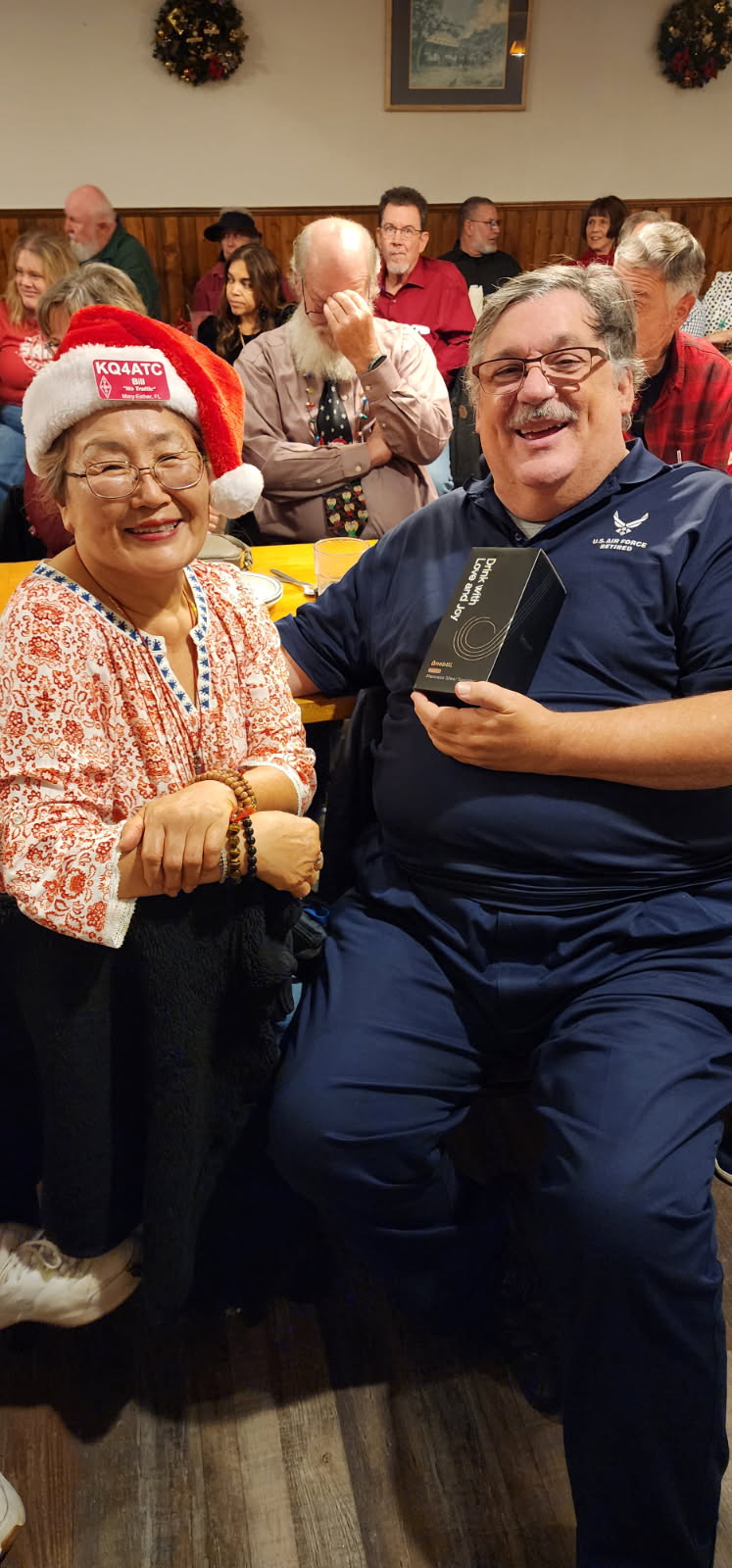
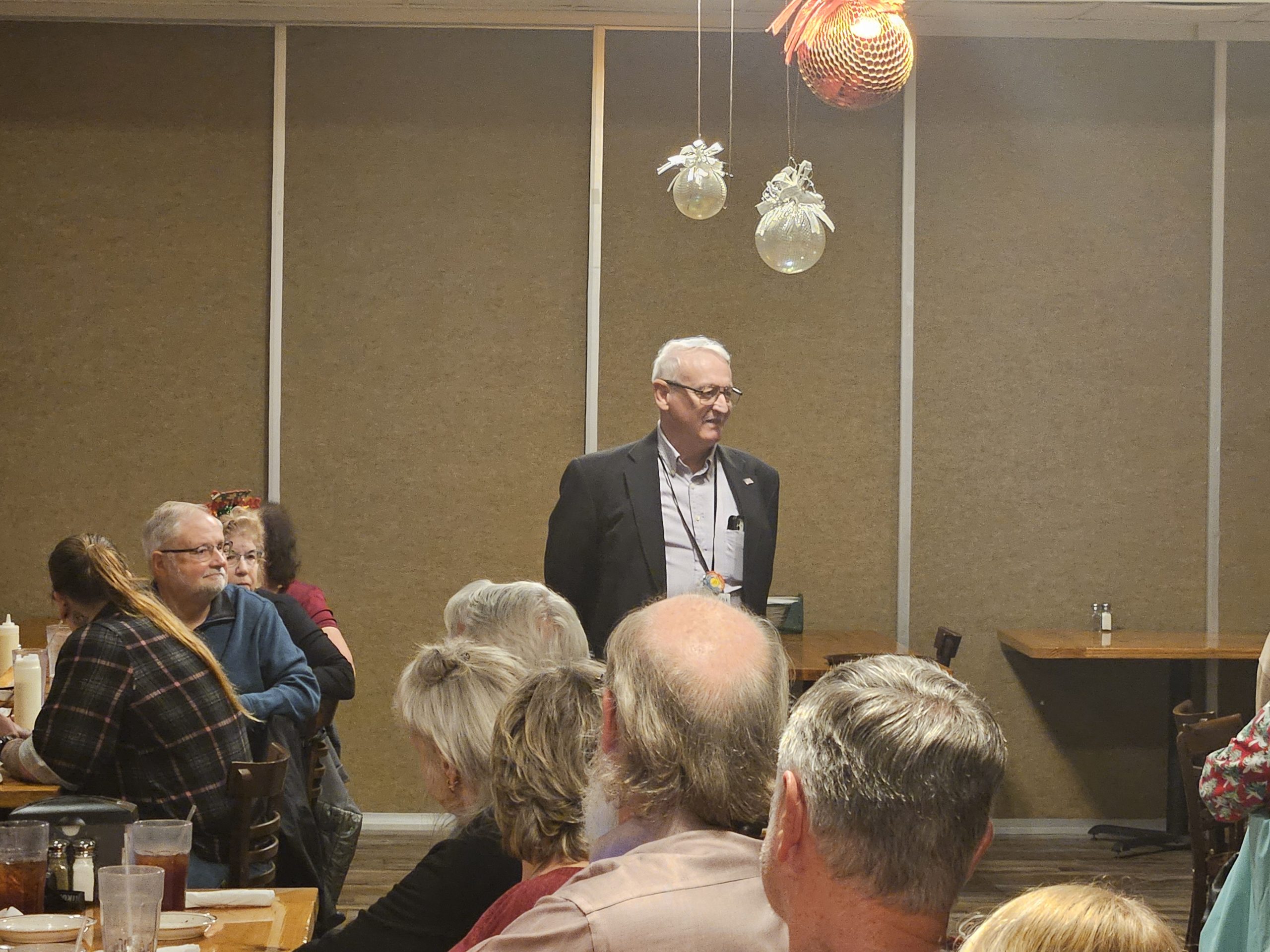

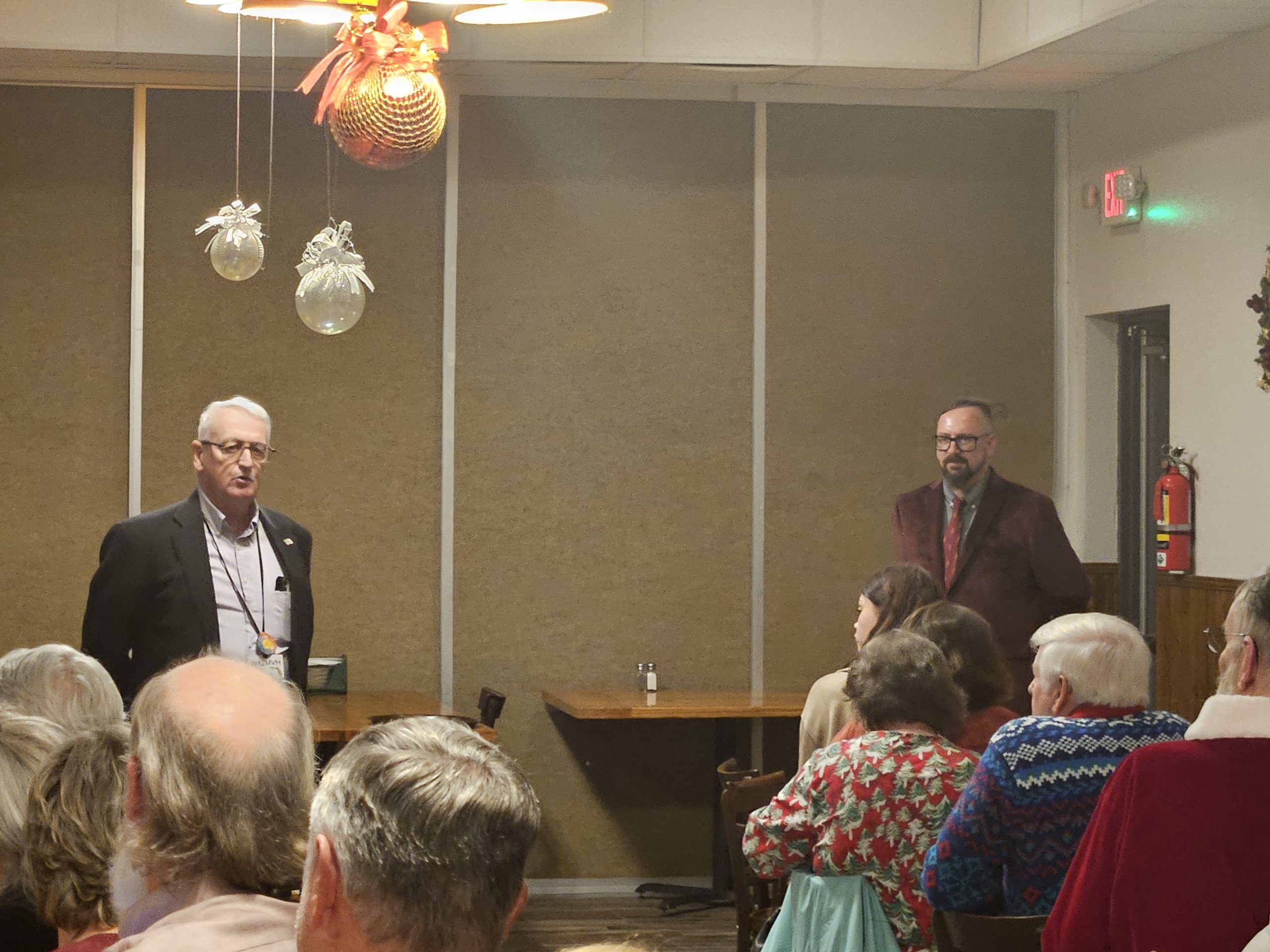
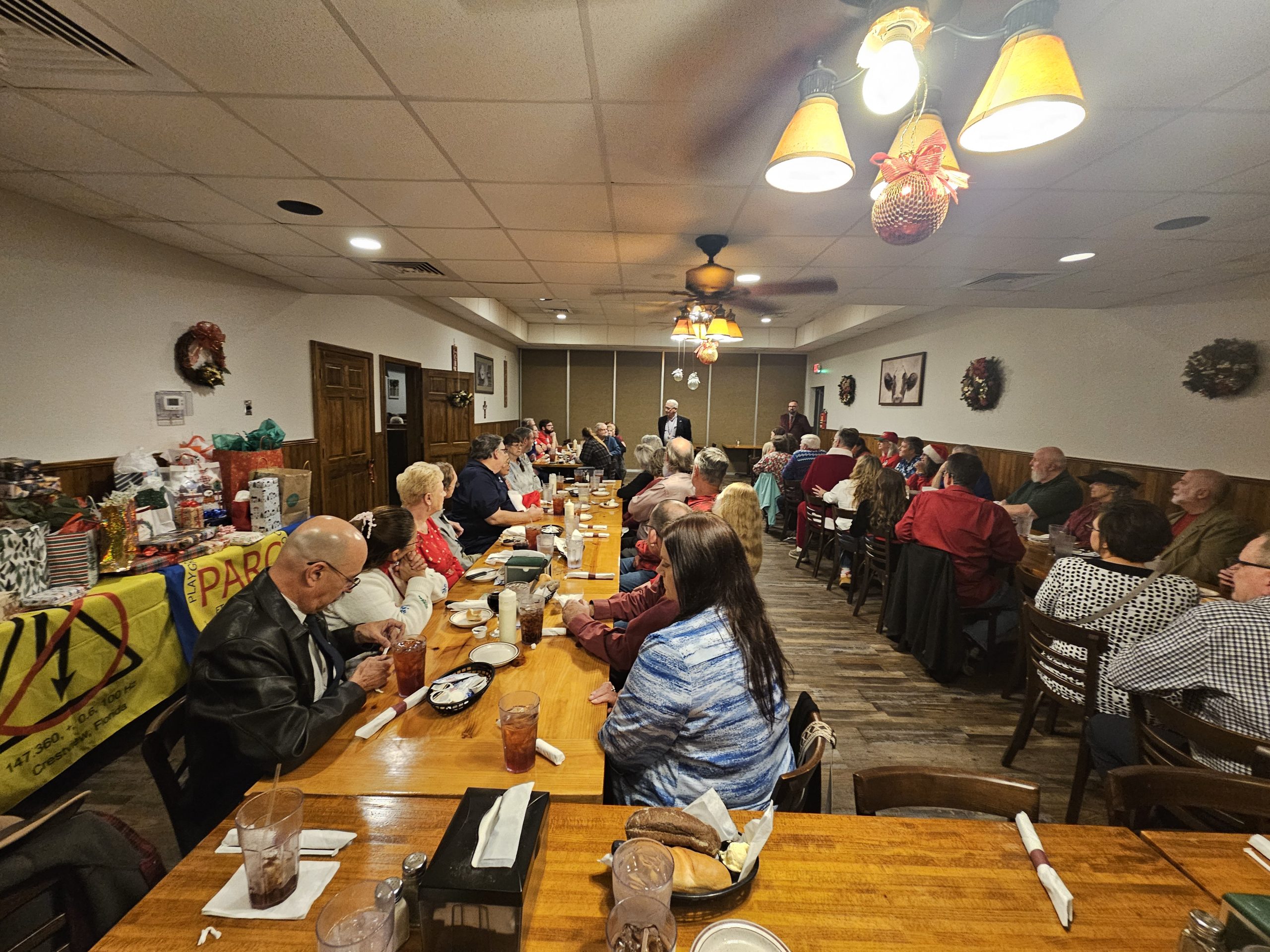
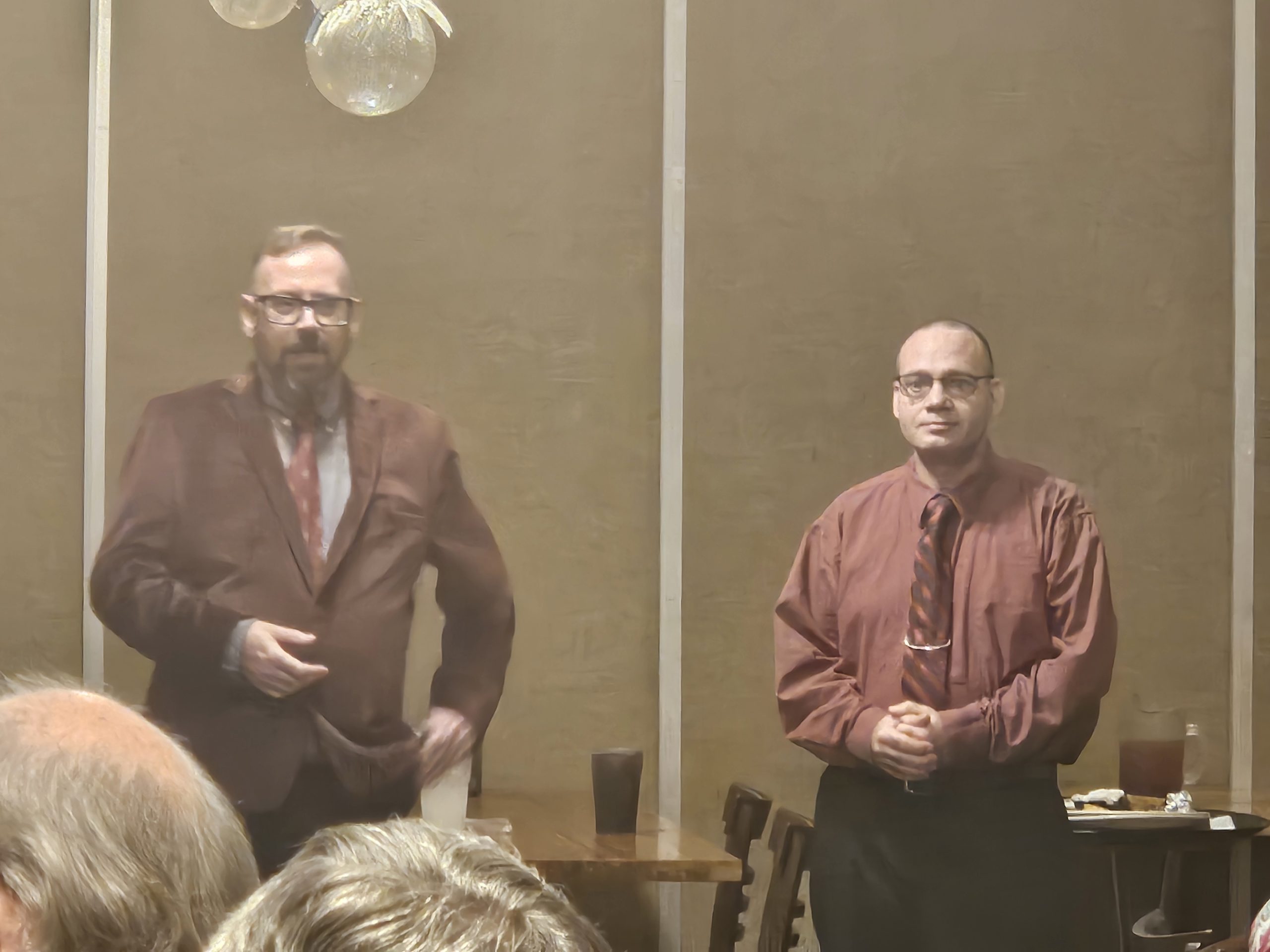
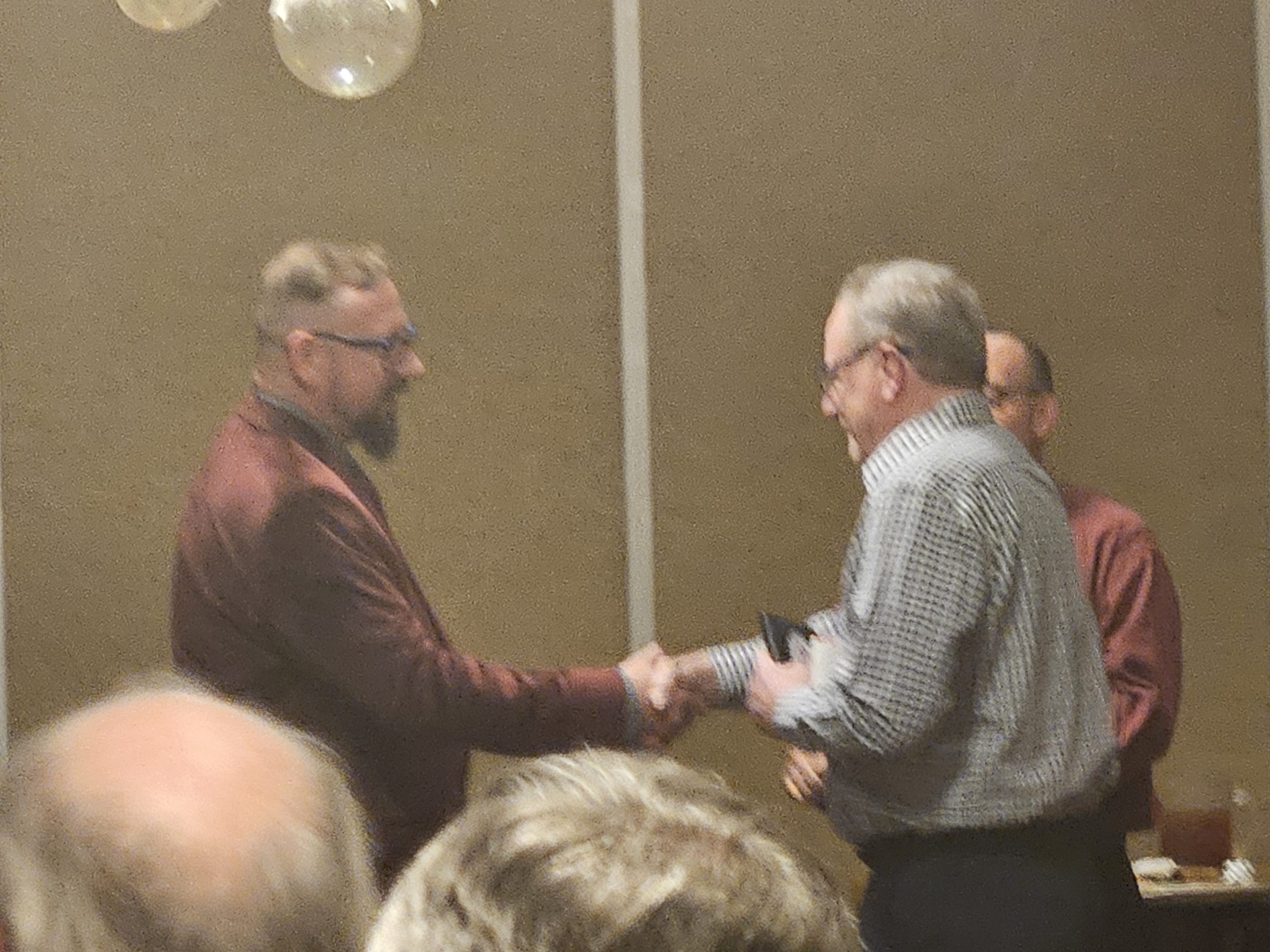
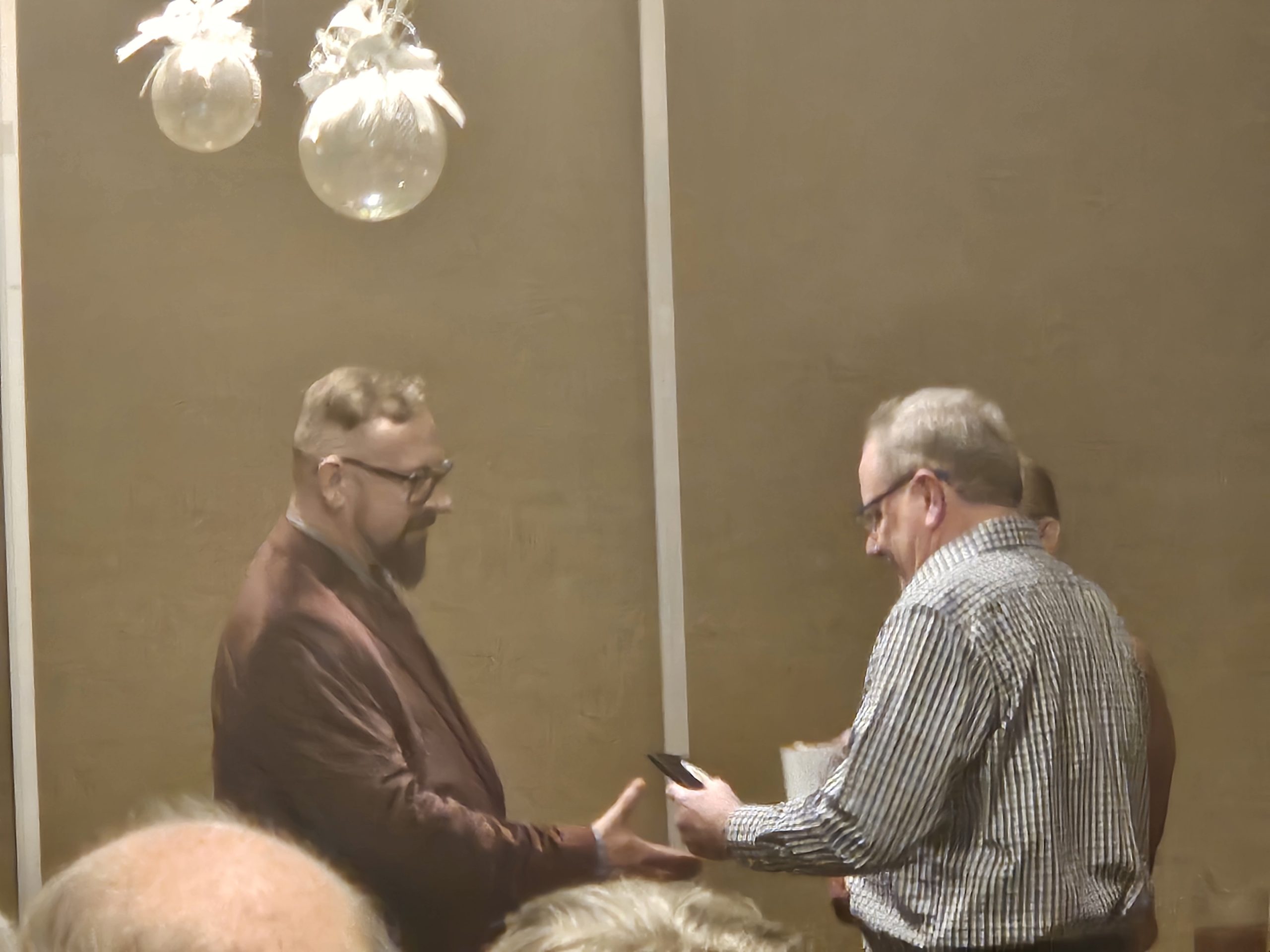
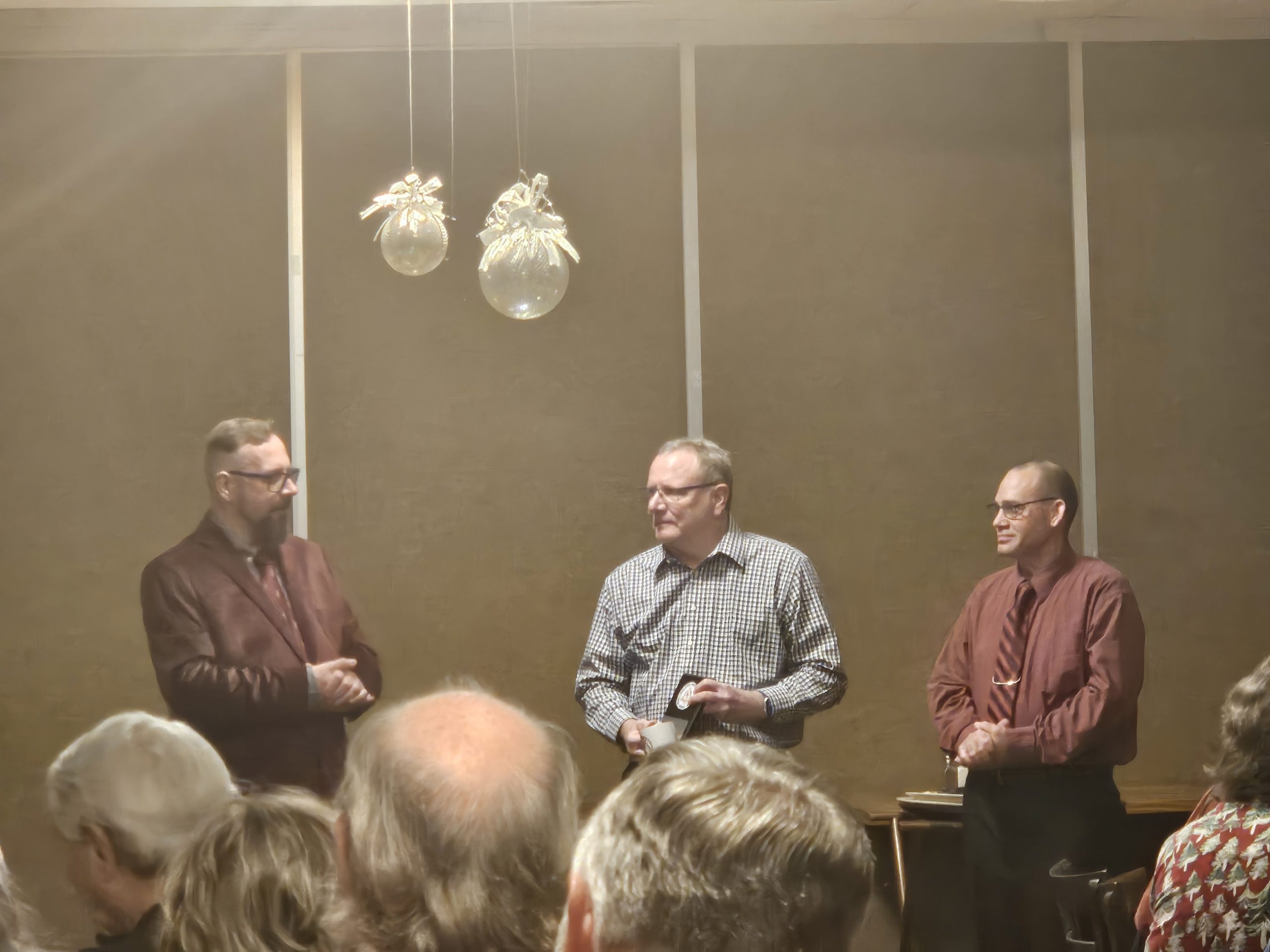
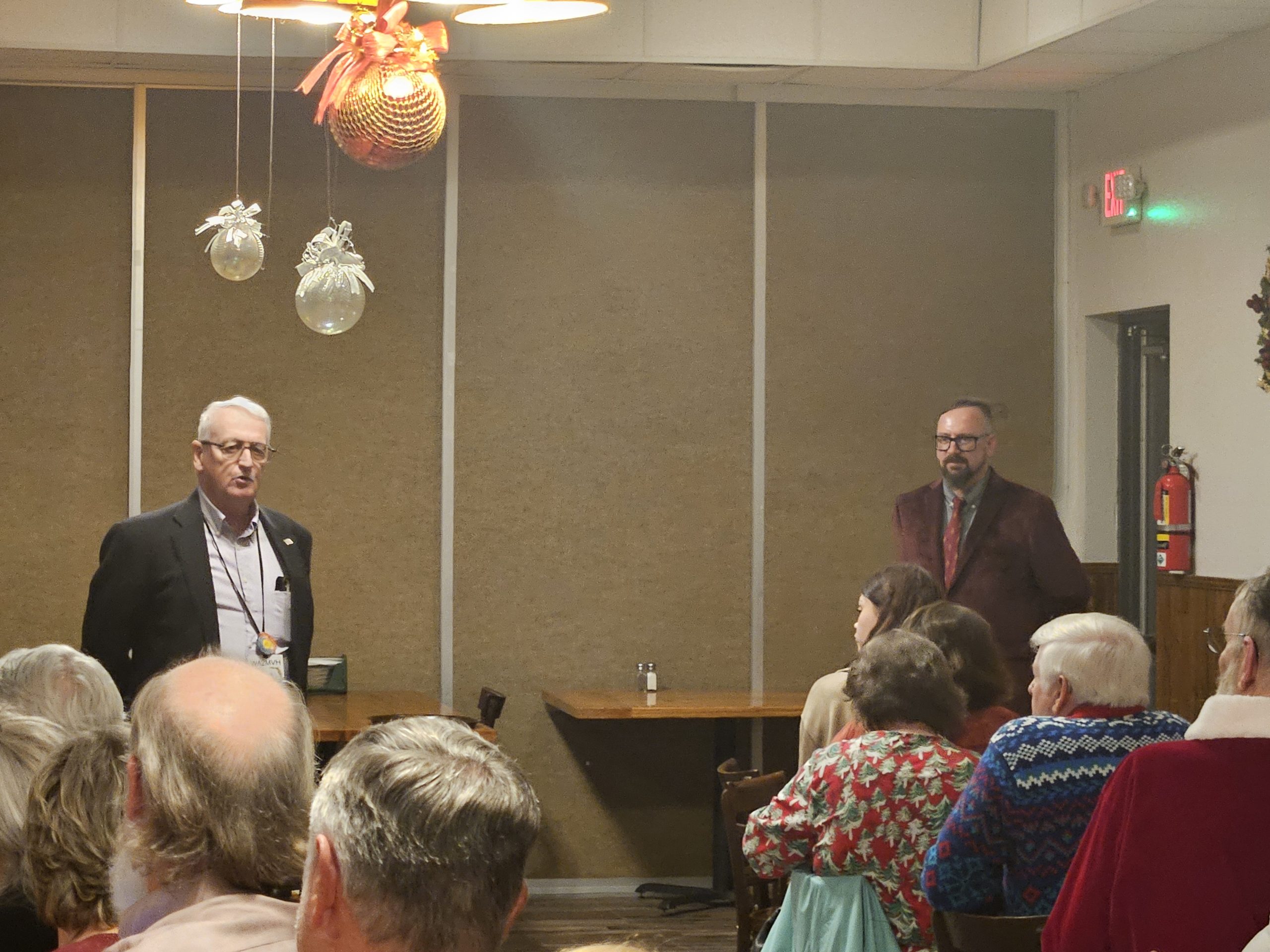
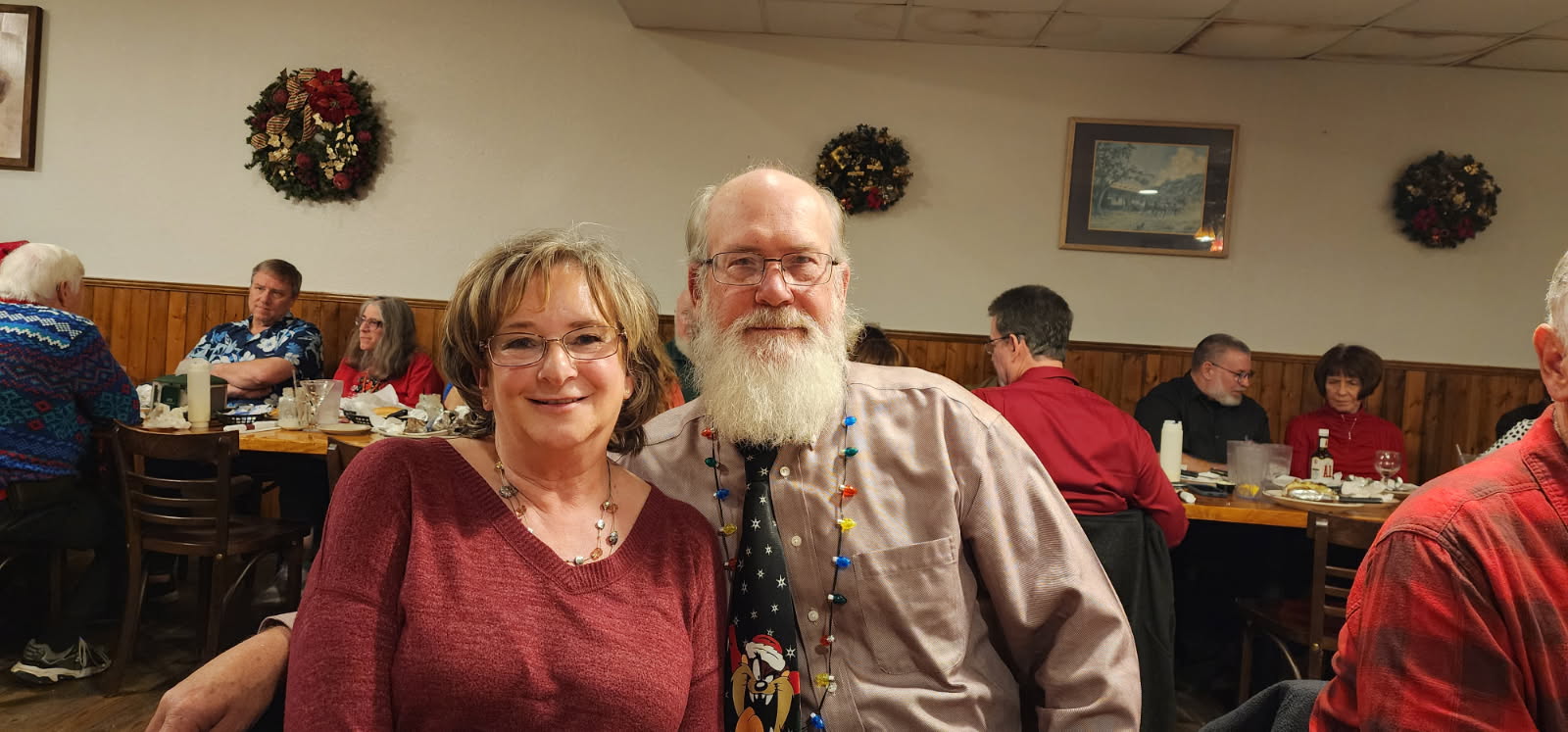
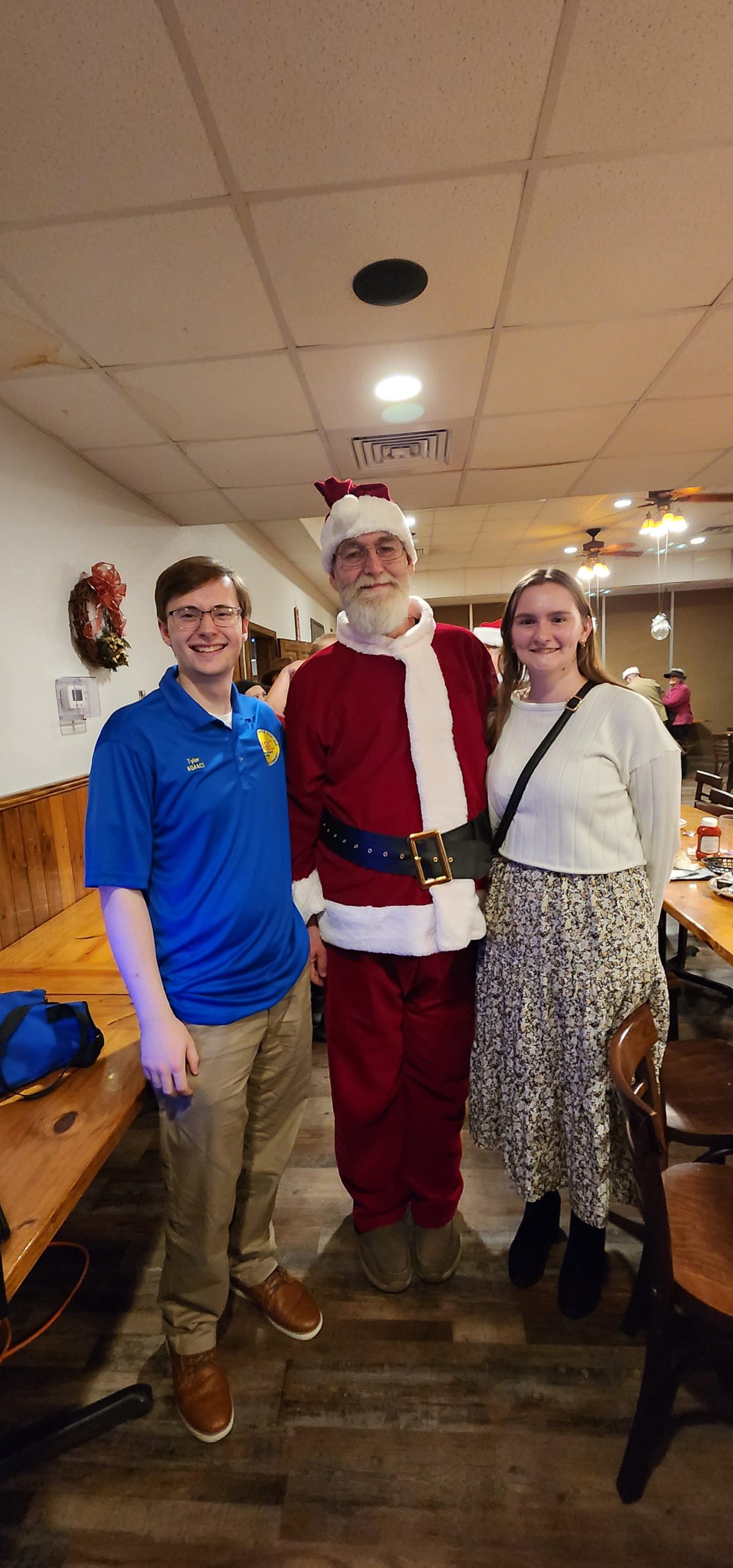
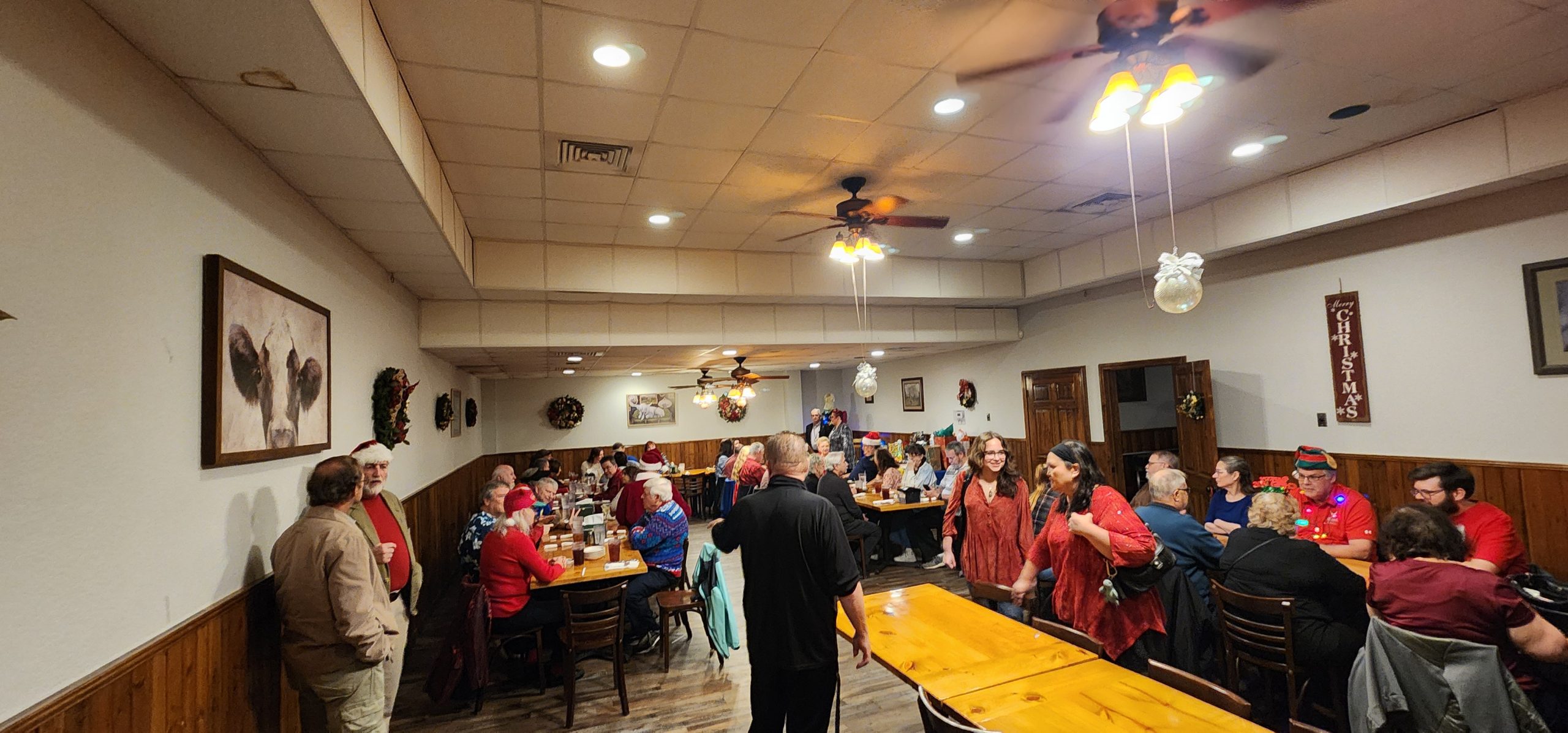
Thank you to all who attended the Holiday Party!
We sure had a wonderful time and hope to see all of you again soon! There will be more pictures after gathering them form other members and sharing them!














Thank you to all who attended the Holiday Party!
We sure had a wonderful time and hope to see all of you again soon! There will be more pictures after gathering them form other members and sharing them!
The Playground Amateur Radio Club is proud to announce this years winner for Ham of The Year! Traditionally awarded at the famed Holiday Party, The winner this year will be traveling for the holidays. So we made the decision to award and present at the Business Meeting!
Meet Zach, KR4FWK!
Zach recently joined the Playground Amateur Radio Club and ever since, he, just like many others, keyed the mic from the start! Zach is an avid experimenter in communications! He consistently strives to improve his station and share his experiences with others! Zach also participates in multiple Club functions and leads by example often teaching his lessons to other new operators and those interested in amateur radio! Zach also has been a regular on a multitude of frequencies, answering the call while testing out his experiments for other operators to advise on signal reports and offering insight on what to do to improve communications capabilities in the area! If you are at the Playground, on the repeaters, on the air or even an event, be sure to congratulate Zach on his achievement!
Zach’s selection was as a result of polling in the club and recording the votes. This year a large thank you goes out to Rey, KM4DYA for his contribution to transform a Eimac Tube into a desk lamp! Thank you Rey for taking an idea, and making it a reality setting the standard to be followed for years to come!
Honorable mentions that were close in the running this year include (in no particular order):
KQ4FRB, KQ4ATC, AA0EU, NC4MR, KK4SSM, and KQ4YXY.
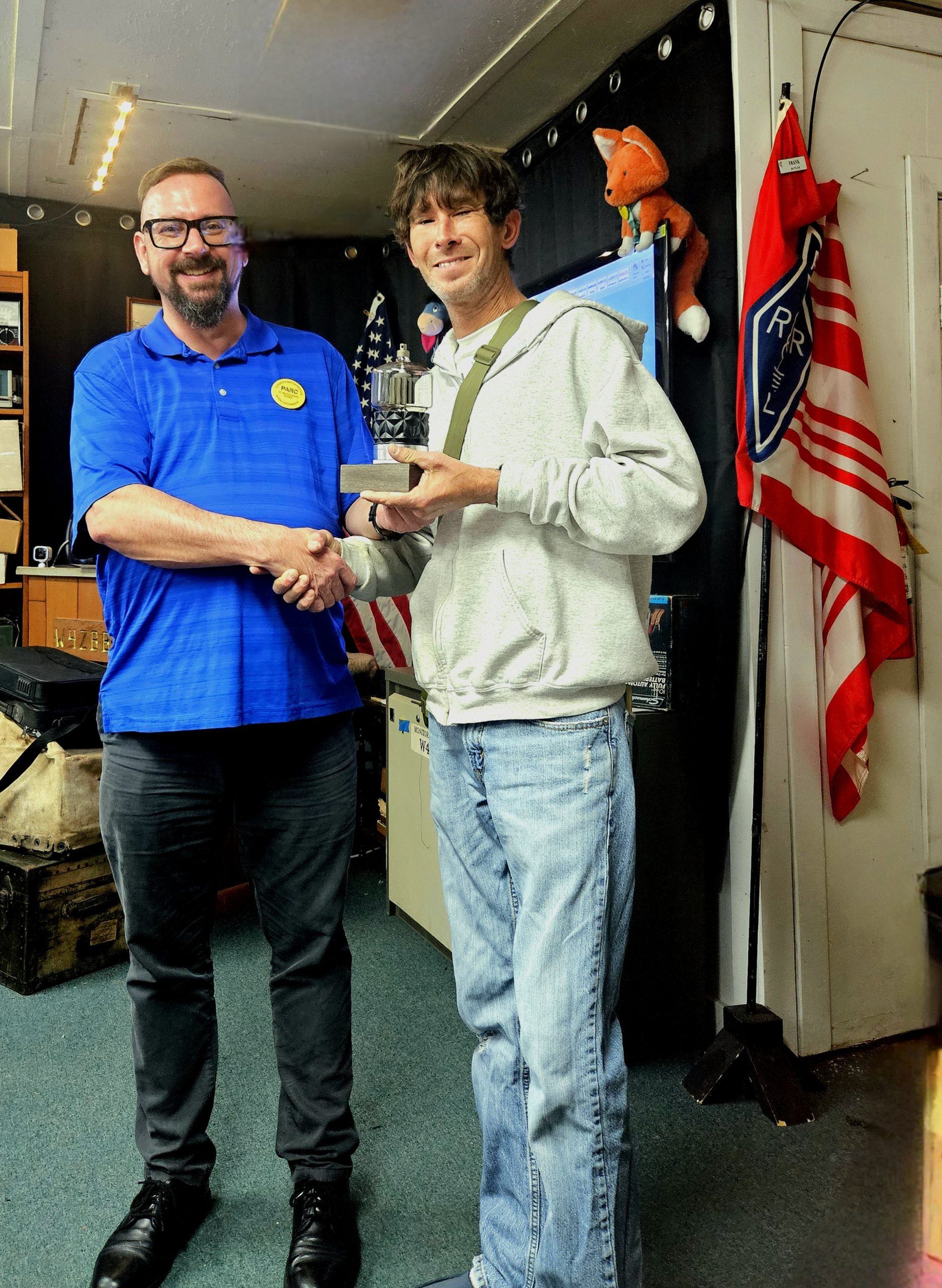
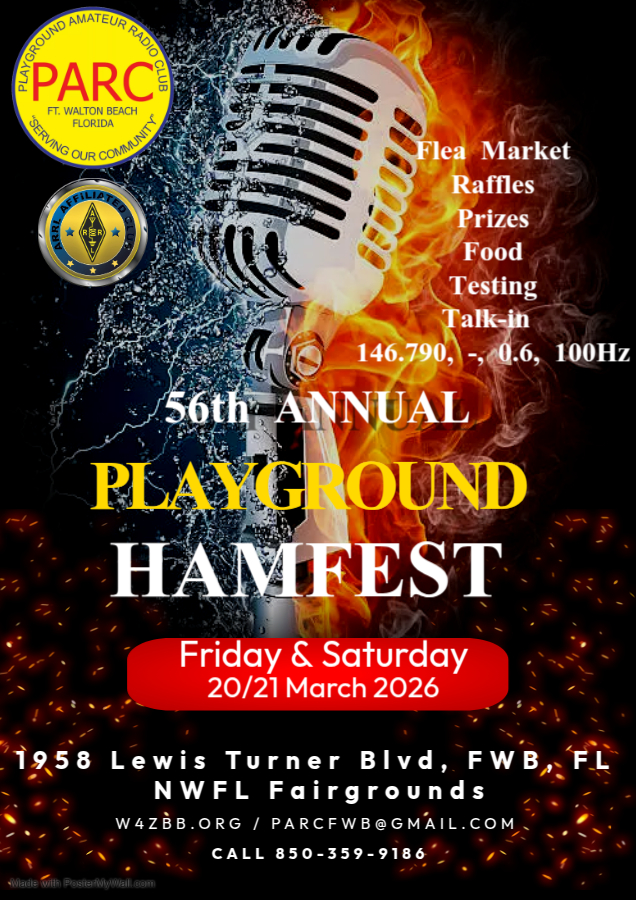
In Beautiful Downtown Fort Walton Beach Florida there is a long standing tradition of putting on a Spring Amateur Radio Hamfest! Through the years the team at the Playground Amateur Radio Club has brought Amateur Radio Operators and Communication Enthusiasts from all walks of life together to participate in one of the Southeast’s best shows!
Coming in 2026 with dates tentatively set for the third weekend in March on the 20th (Friday) and the 21st (Saturday), the Playground Amateur Radio Club, Inc. of Fort Walton Beach invites YOU to the Rigdon Center (formerly the Northwest Florida Fairgrounds) at 1958 Lewis Turner Blvd, Fort Walton beach Florida for its 56th consecutive and annual tradeshow!
As we embark upon this journey together, watch this page for more information concerning prices for tables, admission fees, reservation instructions, prize notifications, and more! This hobby is great because YOU choose to be involved! We function as a team to proudly give back to the community and extend our handshake in welcoming you to the 56th Playground Amateur Radio Club Hamfest!
Admission: $10.00
Scouts in Uniform: Free
12 and Under: Free
Over 85: Free
Tables: $15.00 each
Location:
1958 Lewis Turner Blvd Fort Walton beach Florida
Dates: Friday March 20 & Saturday March 21, 2026
Friday Show Information: March 20 Set Up 8 AM – 2 PM
Friday March 20 Pre-Show: Open 3 PM to 5 PM – No Raffle
Saturday Show Information: Saturday March 21 Set Up 6 AM – 8 AM
Saturday Full Show! 8 AM to 1 PM
Amateur Radio Testing at 900 AM March 21, 2026. Must Pre-Register@ PARCFWB@gmail.com
Prizes To Be Announced!
Door Prizes During the Day – Must be present
Main Prizes – Need not be present to win!
Main Prize drawings at: 3rd Place: 1200 PM, 2nd Place: 1230 PM, Main Prize: 100 PM
RV Camping on site available but no services (No Water, No Power) as the area is being refurbished.
Are you ready to Ham & STEM? Of course you are! Come participate with APRC, break out your go kits and portable gear! Come operate in the community with the fine folks at Yule of Yesteryear in gorgeous downtown Valparaiso Florida!
The Annual Christmas themed fundraising event for the Heritage Museum in Valparaiso, Fl. with craft vendors, food truck, children’s choirs, the Valparaiso Garden Club, Walton guard, bake sale, the Grinch, free admission to the museum and more.
Saturday Dec 13, 2025
December 13 2025, 10:00 AM until 4:00 PM
Heritage Museum Association
115 Westview Ave
Valparaiso FL 32580
Event is free
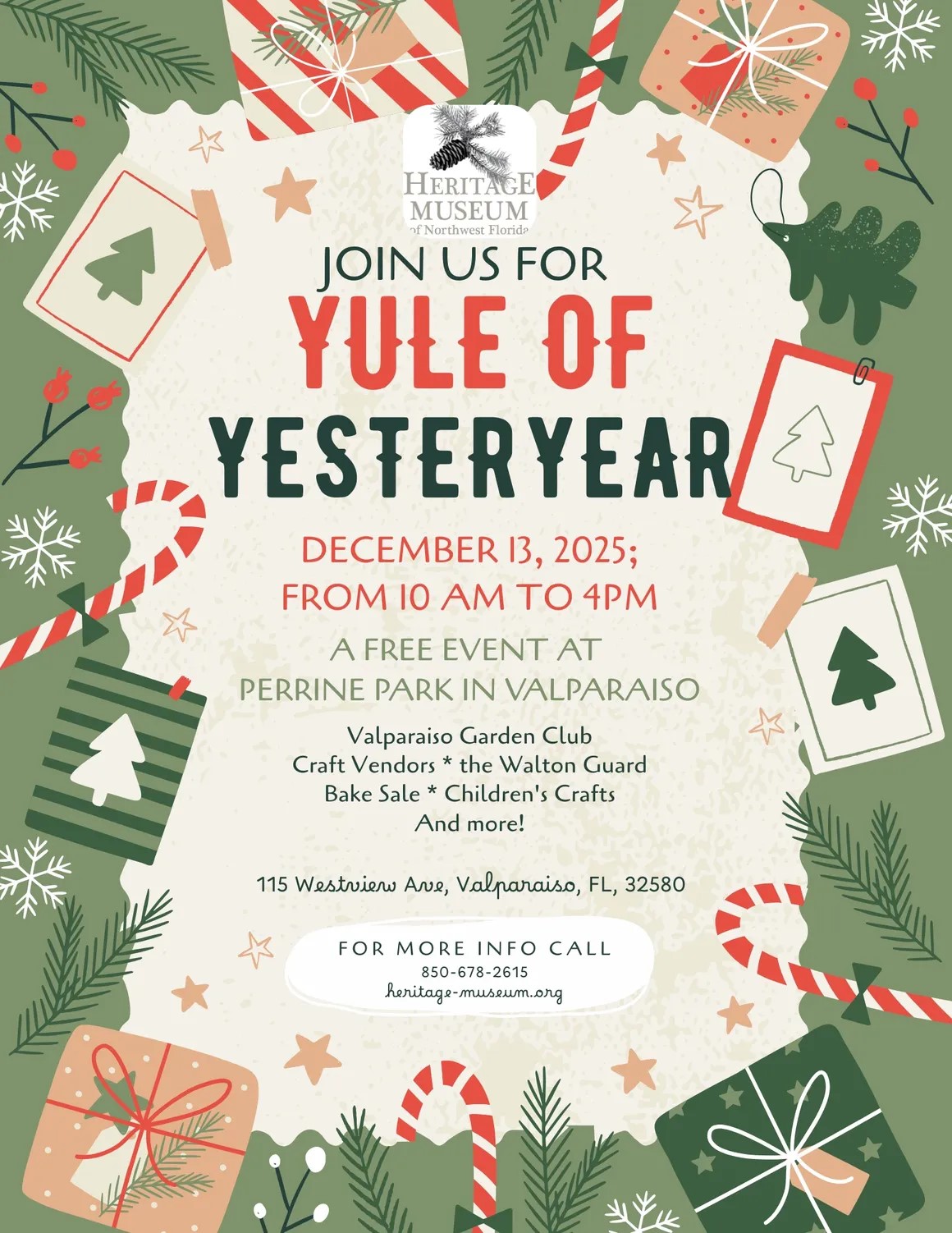
Howdy!
We hope you all have had a wonderful Thanks giving and are preparing for Christmas and New Years! Next Year we embark on the ARRL Year of the Club! This will be an exciting time to go forth and promote YOUR organizations, Clubs, activities, and more! Be sure to take part of all of it and recruit people to join out wonderful hobby!
Coming to You on Thursday Dec 4th at the PARC Clubhouse, 17 First St SE Fort Walton Beach Florida we are having a hands on Tech Night with Station 1 introductions and future plans! Be sure to attend and we will see you at 730 pm CDT Thursday Night!

Have a wonderful Thanksgiving and be sure to share some time with family, friends, and all those who you cherish!

At the Pile-Up, we here at PARC pulled out the Fan Dipole to test and tune it. As well, we are coming up with a permanent deployment plan to install it on our tower! This will aide us in standing up Station 3 for Winter Field Day at the Playground Amateur Radio Clubhouse! More to come on this project!
By the way, we DX’d Paraguay with ease!
MAN o MAN!
Did you make it out to the Swampfest?! If you did, THANK YOU! If you did not, YOU, missed out on one of the best, year end closeouts in the area! We hope to see you all again soon!
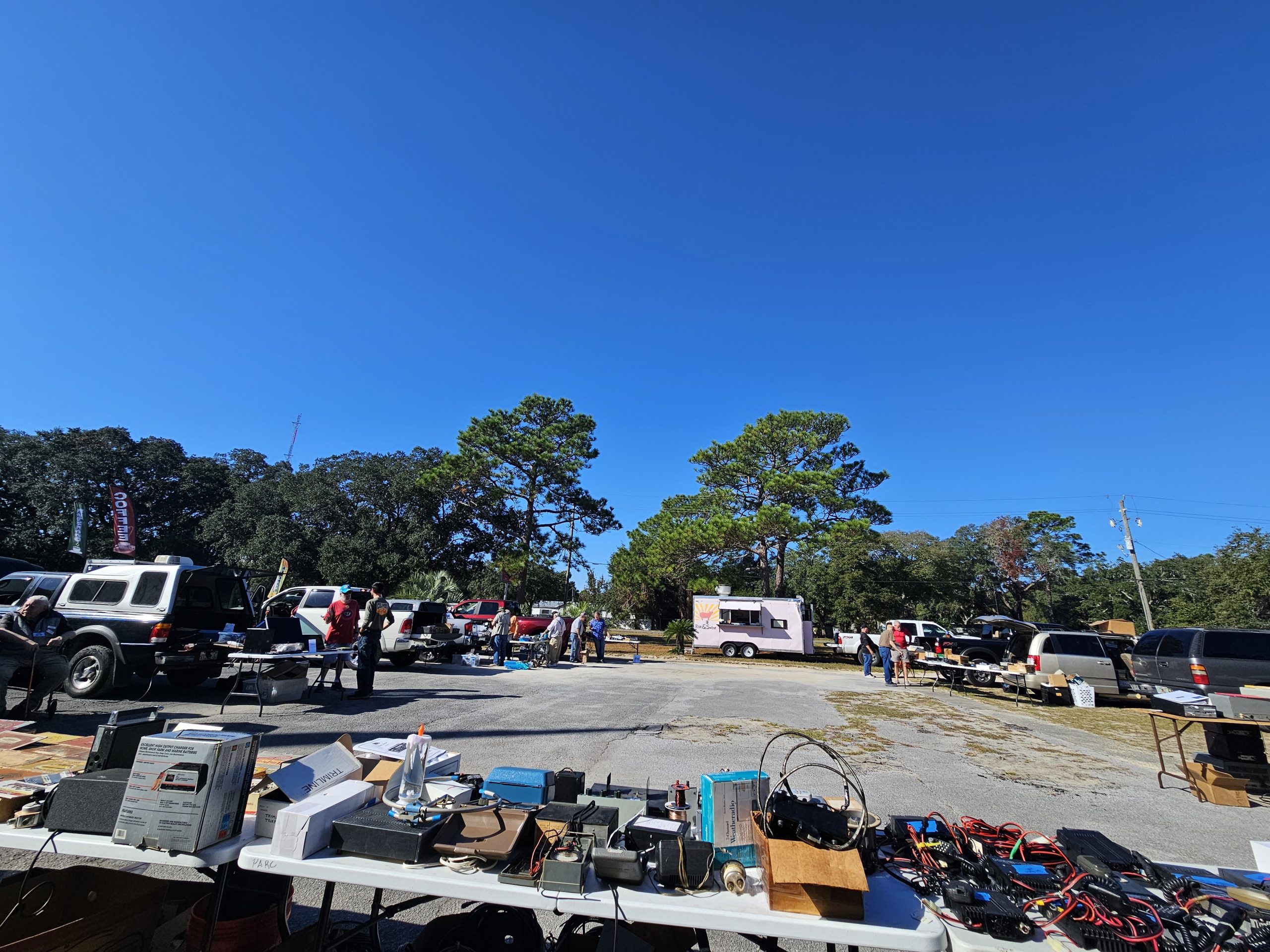
Are you Excited?! You should be! We are ready to host you for FREE in FWB for yet another FREE Tailgate on Saturday Nov 15 2025 from 8 – 1200! Be there and get that deal!

Class has begun at the Playground Amateur Radio Club! This is occurring in person and online! For details go to w4zbb.org.

Powered by WordPress & Theme by Anders Norén